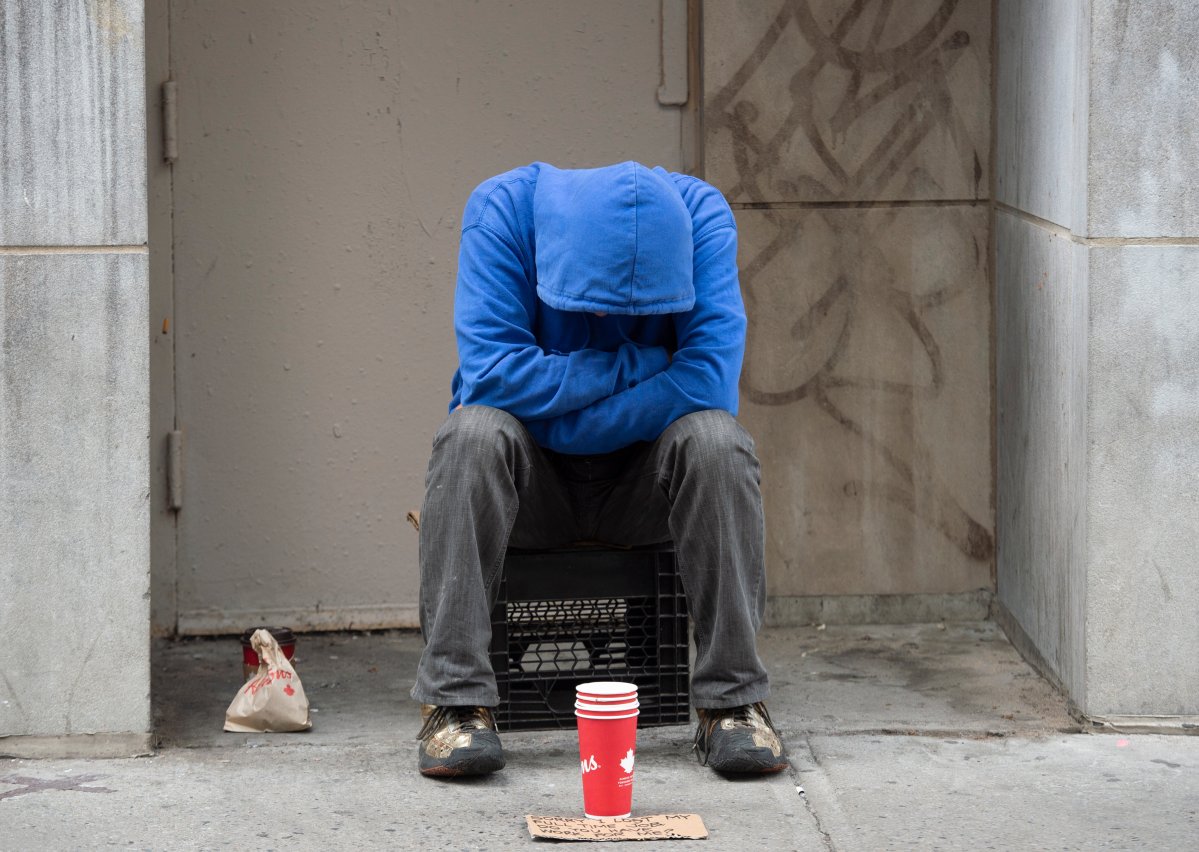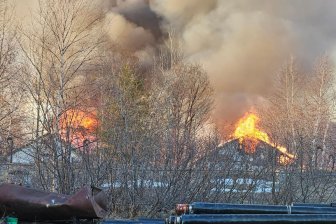Officials with the City of St. Thomas and Southwestern Public Health in Ontario say they are monitoring a cluster of positive COVID-19 cases in the city that involve approximately 10 people who are experiencing homelessness.

None of the cases are confirmed or suspected to be related to the newer and highly-transmissible Omicron variant, but are likely to be Delta-related, according to the health unit.
In an interview Tuesday, Dr. Joyce Lock, the region’s medical officer of health, said several members of the city’s homeless population began exhibiting COVID symptoms within the last seven days and were later tested and found to be positive.
Lock said the health unit expects more cases to come forward as a result of the cluster, but how many remains unclear.
“There have been several (people) who all know each other from our homeless community who now have COVID. We have been working very closely with the municipality to ensure that they are in place where they can safely isolate,” Lock said.
Most of the individuals identified are currently being housed at 50 Wellington St., the former Wellington Street Public School that is being utilized as a temporary isolation site, according to the health unit.
“Well, as we all know, If we get sick with COVID, then we’re instructed by public health to stay home… These people don’t have a home,” Lock said.
- Naloxone-resistant street drug linked to 9 deaths in Eastern Canada seized in Alberta
- ‘She gets to be 10’: Ontario child’s heart donated to girl the same age
- Buzz kill? Gen Z less interested in coffee than older Canadians, survey shows
- Bird flu risk to humans an ‘enormous concern,’ WHO says. Here’s what to know
“We have worked with the municipality to set aside a separate place where we can house them for the duration of their COVID illness and allow them to isolate like any one of us would in our homes.”
Those linked to the cluster are being provided supports at the former school by community and local health-care agencies, including food, laundry, personal hygiene and health needs, according to the health unit.
News of the cluster comes as the region has recorded an overall uptick in cases over the last six weeks, and amid ongoing concerns of the Omicron variant across the province.
The Elgin-Oxford region has reported at least 1,023 cases since Nov. 1 along with 14 COVID-19-related deaths. Overall, the region has reported 5,729 cases during the entire pandemic and 106 deaths to date.
No cases of the Omicron variant have been confirmed in SWPH’s jurisdiction as of Tuesday, according to Public Health Ontario. At least 95 have been confirmed across Ontario, however public health officials say they expect the number is actually much higher.
The province’s panel of expert advisers on COVID-19 estimated Monday that Omicron makes up 30 per cent of new daily infections, with cases doubling every three days.

Dr. Lock said local health officials were preparing for Omicron to arrive in the region, if it hasn’t already. Dr. Kieran Moore, Ontario’s chief medical officer of health, has said he expects the variant will become the dominant strain in the province before long, she said.
“I think a message for everybody out there is (that) the best way to protect yourself from becoming seriously ill, as always, is to get your vaccine,” Lock said.
“If you’re eligible for your third dose, or all those who are above 50, do step up and attend our clinics. Were opening up more and more spots to be sure that you can get easy access to your vaccines.”
The health unit is keeping a close eye on other countries where Omicron is more prevalent to see how the variant may impact local hospitals when cases here begin rising, she said.
Last week, the province’s COVID-19 Science Advisory Table projected the province could see up to 3,000 daily COVID-19 infections and close to 400 patients in intensive care by mid-January, even without accounting for the Omicron variant.
“Early signs indicate that the Omicron variant does not necessarily immediately lead to really sick people, and so the hospitals have been holding their own,” Lock said.
“We definitely also know that if can be sure that you’ve got a robust immune response through being fully vaccinated, that will decrease the need to be in hospital So we, along with many of our other health unit partners across the province, are going to be really encouraging people to to step up and get their third dose if they are so ready.”
According to the non-profit research group ICES, Southwestern Public Health has the sixth-highest weekly per cent positivity rate in the province with 5.37 per cent, behind Windsor-Essex (7.74), Chatham-Kent (6.78), Haldimand-Norfolk (6.45), Algoma (6.44), and Sudbury (6.33).
ICES data continues to show that some areas within SWPH’s jurisdiction remain the least vaccinated in the province when looking at residents of all ages.
Roughly 55 per cent of all residents in the N5H forward sortation area (FSA), which centres largely around Aylmer, had received at least one dose of the COVID-19 vaccine as of Dec. 5, while roughly 52 per cent had received two, the lowest rates of any Ontario FSA.
Number two on the list of least-vaccinated FSA’s is N0J, a large part of which falls within SWPH’s jurisdiction. At least 61 per cent of all residents in N0J had received at least one dose, while nearly 59 per cent had received two.
— with files from The Canadian Press











Comments